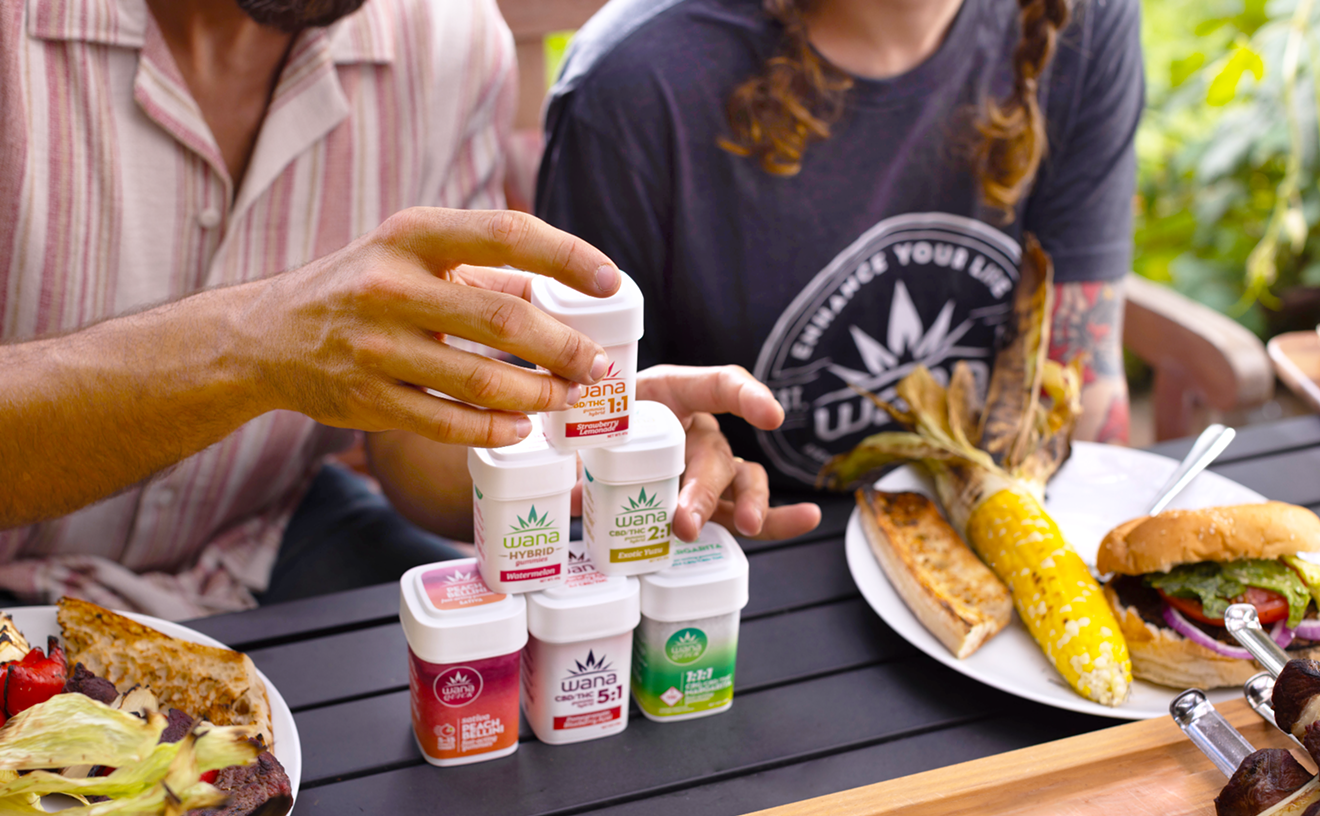The cannabis industry has no shortage of entrepreneurs fighting to gain a toehold in the field, but one of the industry’s most well-known names got there almost by accident. Ricardo Baca had been covering music for the Denver Post for over a decade when Colorado legalized the plant recreationally, and he was a bit befuddled when his bosses asked him to lead what would become the Cannabist, the first cannabis vertical for a major daily newspaper.
After talking with his mother and wife, though, Baca eventually took the job, becoming the editor-in-chief of the Cannabist and, in the process, a go-to expert for national media outlets. He still has that role after leaving the Post at the end of 2016 to start Grasslands, a full-service agency for cannabis businesses. Baca writes about pot for such media outlets as Esquire and the Daily Beast, and when United States Attorney General Jeff Sessions repealed the Cole Memorandum in January, Baca was a natural to talk about the move on MSNBC.
We recently caught up with Baca to talk about his transition from reporter to potrepreneur, keeping one foot in the journalism world while he runs a cannabis business, and recent moves at the Post, including killing the Cannabist Show podcast.
Westword: You’ve been vocal about your lack of cannabis use and knowledge before you started writing about it. How did being a journalist speed up that education?
Ricardo Baca: It was everything for me, because I wasn’t really following along on this subject before November 2013, when I got the call. That next day, when I met with the number two at the Post, Kevin Dale, I told him straight up that I wasn’t the biggest aficionado in the newsroom. He agreed and said that was part of the reason: I was a little more detached.
But they all thought I was a lot more experienced than I was [laughs], just because I’d been writing about music for thirteen years. Being thrust into that position, you’re expected to know this kind of stuff not only by your bosses and your readers, but then suddenly you’re being interviewed by Anderson Cooper or George Stephanopoulos, and you’re demanded to know your shit. I was terrified about looking like an asshole over complex questions about statistics, numbers, certain local tax percentages in an era before a lot of the sales had even started in Colorado.
I acknowledged what I didn’t know, but I would also bring these little sheets of paper and pack it with statistics. I remember sitting and waiting for these interviews with MSNBC, NPR, and going over statistics to make sure I got these things right. It fast-tracked my trip to becoming a subject-matter expert.
You wrote about music for thirteen years at the Post and have acknowledged it as a large reason for becoming a reporter. What’s it like to become more well known for cannabis, something you didn’t even consider writing about five years ago?
I know, right? I think it speaks to the unusual nature of the position. There are a million music critics, especially in the blog era. But there was only one weed editor after I made the switch, and that was a lot more interesting for people to talk about — and I’m okay with it. It’s funny that I’ve devoted so much of my professional and personal life to what was happening in the Colorado and Denver music scenes for a dozen-plus years, but that’s certainly not what people are associating me with anymore.
I’m really proud of the way we covered the local music community, though. In fact, we covered the local music scene so much that people always mistook me for a Westword reporter, because we threw a music festival that was primarily local and we wrote about locals. They never thought a daily newspaper would be crazy enough to allow a full-timer to do that, so kudos to the Post — and kudos to Westword for digging into those local-music beats and actually making them beats long before any dailies were doing that.
Both prohibitionists and advocates can use questionable information to support their beliefs, and cannabis-related studies are few and far between. How did you approach covering this hot-button issue objectively with such a small amount of verifiable information out there?
I tried to give each side their voice, and I also had to recognize that you just can’t fact-check everybody in the context of a single story. It’s just impossible unless you have the resources of the New York Times, which is making an ongoing effort to fact-check everything our president says, and that in itself is a monumental task. But at the same time, it’s really difficult, because you know when people are talking bullshit. If they were a guest on the show, I would often call them out with “We know that’s not quite true” or “What set of statistics are you using to support that?”
The more knowledgeable and experienced I became, the more it made sense to be more curating in who I was talking to and how I was talking to them. The activists on each side of the legalization equation have evolved in terms of what they’re saying. Prohibitionists can’t say what they were saying five years ago, because so much of that has been proven wrong. Now they have to move to different frontiers, like arguments about youth use or potency. You see their message changing, because they’re being forced to.
How do you write about the cannabis industry and criticize it objectively while also working in it?
It’s very strange, especially after a lifetime of daily journalism. I was working for my high school newspaper, parlayed that into a scholarship at Metropolitan State University of Denver from the Rocky Mountain News, and worked there through college. I spent three years at a newspaper in Corpus Christi, Texas, and then fifteen at the Denver Post — and then, after a lifetime of that, I’m turning forty and am not a daily journalist anymore.
But now this new job and life presents an awesome number of challenges every day, and that particular one is interesting, because people are interested in it. A Buzzfeed writer recently tweeted at me, asking if my editors at the Daily Beast knew I was working with businesses in the industry. I told her the same thing I tell everyone else: Absolutely they do.
I tell every client before we sign that I will never write about them for a very long time — not for a long time after our agreement is over and our work together is fully accomplished. Obviously, I don’t exist under the constraints of an ethics policy anymore like I did at the Post, which guided my professional work for more than fifteen years. But throughout a lifetime of journalism, I’ve developed a good ethical and moral compass, and that’s what is guiding me now. In my writing for the Daily Beast or anyone else, I’m not going anywhere near my clients, and I approach everything else on a case-by-case level.
How do you feel about the state of cannabis media today?
This readership is a lot more discerning than it gets credit for. They’ve gotten shit on by the mainstream media and mainstream culture, both of which thought cannabis consumers are bumbling idiots who can’t get through the day.
I think cannabis media in general has a very bright future and a bright right now, though. What Leafly is doing is very innovative; the combination of news and in-depth lifestyle coverage is essential. My former colleagues are also continuing to do great work, but I’d like to see the Post supporting the Cannabist more. It’s an important brand, and I’m very proud of it in the same way I’m proud of the Underground Music Showcase.
I definitely want to see the Cannabist live a long, bright future, but it’s great to see some of the others covering the corners, too — what alt-weeklies and other dailies are doing throughout the country. The San Francisco Chronicle has its own vertical now; there’s a new cannabis writer at the San Diego Union Tribune, who’s their former science writer. We need more science writers covering weed! We need more data journalists covering weed, like Christopher Ingraham at the Washington Post. I think we just need to see a lot more resources devoted to this space.
How long do you think legal pot’s news hook is going to last? Or is it already fading?
I do see a calming period. Before, like from late 2013 to early 2015, we had a saying: “Anything that’s green leads.” People couldn’t get enough, because this concept was so foreign to them. This is truly the biggest drug-policy shift in our lifetime. It’s opening people’s eyes to how we’ve been lied to; how we bought that hook, line and sinker; how so many communities, especially communities of color, have been negatively affected by our actions. This is the very beginning, but cannabis will always be remembered as the tipping point that led to “X.” Whether that’s medical MDMA or recreational psilocybin — this is only the beginning.
What are some ways media can improve the way it covers cannabis?
How it illustrates stories. In this day, you need hundreds, if not thousands, of these stock images of cannabis — not just cannabis being grown, but cannabis being grown in different mediums. Different methods of consumption, cannabis in labs, cannabis in people’s homes. It’s our responsibility as journalists to tell the whole story, and sometimes we forget that art is a big part of that. We don’t need dirty fingernails and a nasty, slobbery joint in someone’s mouth. You know those pictures: weed and handcuffs, weed and a judge gavel. We had AP, some Getty images access at the Post, and were still just using some of the same shit over and over again.
I also see an opening in the podcast world, especially with the recent death of The Cannabist Show. I think there’s an opening for smart, regular content that is digestible and comes from perspectives of people who have been living in this industry for years.
So what’s the goal with Grasslands? You had a strong reputation before starting it. How has that helped?
My goal has always been to create a journalism-minded content agency. That includes full-service marketing, publicity, thought leadership and a bunch of other things I never anticipated. I’m co-writing Steve DeAngelo’s next book with him. We’re co-writing and editing state applications for medical and recreational cannabis programs. We’re not going after them, but some people want a professional writer in the mix to help with verbiage and telling their stories.
The overall goal is to serve cannabis and hemp, then eventually open up the doors to other industries. We’re journalists with a lot of different passions, and while cannabis will always be one of our primary focuses, we’ve also started to work with non-cannabis clients as Grasslands evolves and expands — and it won’t be long before we’re working with clients in hotels, technology, public markets and cannabis.
Legalization and weed have become a very important part of my life, which is a surprise to me, because I wasn’t consuming at all five years ago. I wouldn’t have ever seen this coming, but now I know I’ll be working in and reporting on this industry and other elements of drug policy for the foreseeable future.
[
{
"name": "Air - MediumRectangle - Inline Content - Mobile Display Size",
"component": "12017618",
"insertPoint": "2",
"requiredCountToDisplay": "2"
},{
"name": "Editor Picks",
"component": "17242653",
"insertPoint": "4",
"requiredCountToDisplay": "1"
},{
"name": "Inline Links",
"component": "18838239",
"insertPoint": "8th",
"startingPoint": 8,
"requiredCountToDisplay": "7",
"maxInsertions": 25
},{
"name": "Air - MediumRectangle - Combo - Inline Content",
"component": "17261320",
"insertPoint": "8th",
"startingPoint": 8,
"requiredCountToDisplay": "7",
"maxInsertions": 25
},{
"name": "Inline Links",
"component": "18838239",
"insertPoint": "8th",
"startingPoint": 12,
"requiredCountToDisplay": "11",
"maxInsertions": 25
},{
"name": "Air - Leaderboard Tower - Combo - Inline Content",
"component": "17261321",
"insertPoint": "8th",
"startingPoint": 12,
"requiredCountToDisplay": "11",
"maxInsertions": 25
}
]












